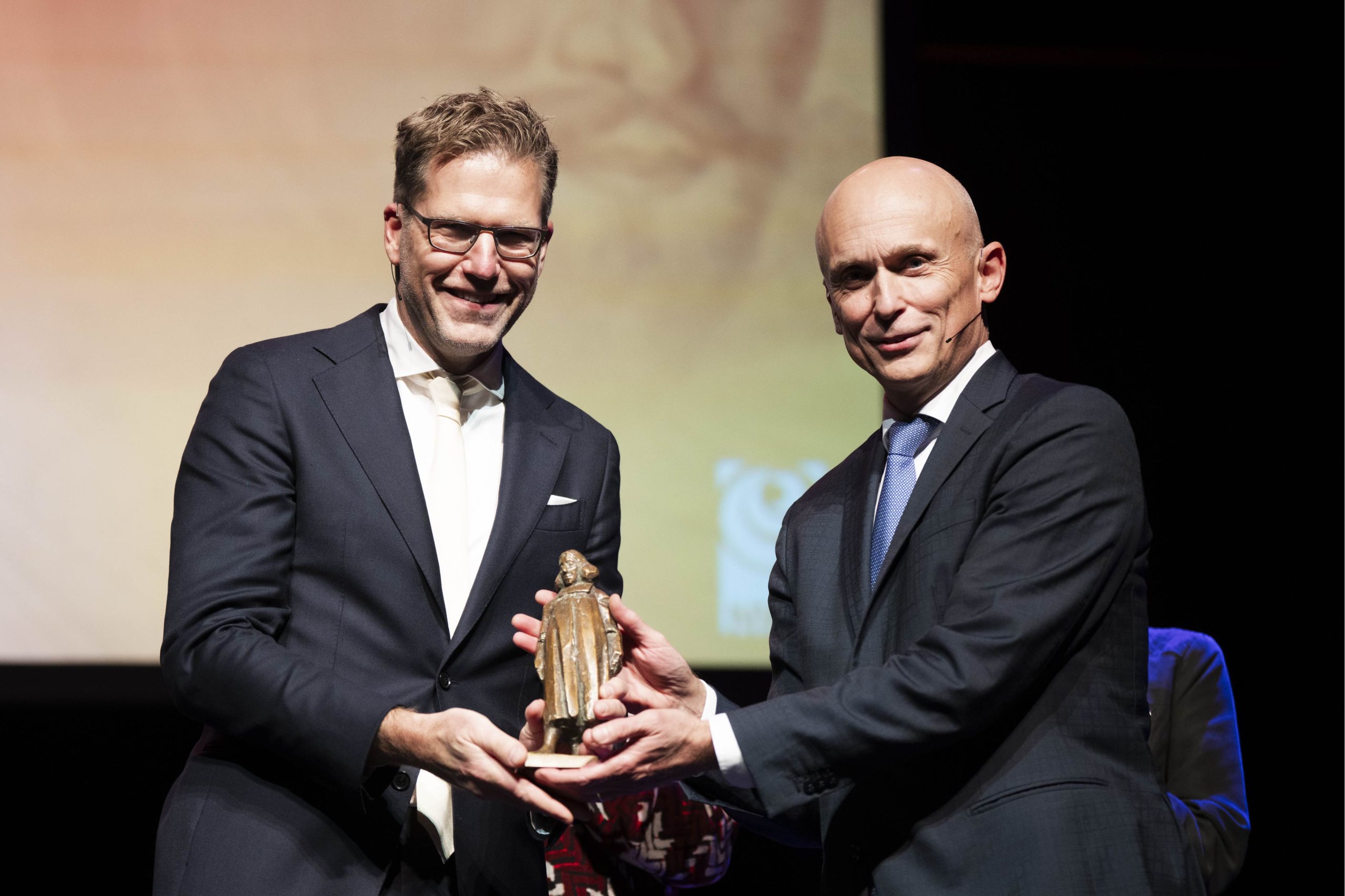Thijn Brummelkamp has been awarded the Spinoza Prize, the most prestigious scientific award in the Netherlands, presented by the Dutch Research Council (NWO). He receives this honor for his groundbreaking work in genetics, which contributes to the search for new treatments for cancer and infectious diseases.
The Spinoza Prize is awarded to researchers who rank among the world’s best in their field. Brummelkamp is scientific director at the Netherlands Cancer Institute, professor of Experimental Genetics at Utrecht University and the University Medical Center Utrecht, and affiliated with the Oncode Institute.
Brummelkamp has achieved several scientific breakthroughs. He developed techniques to inhibit or switch off genes in human cells on a large scale, allowing researchers to better study gene function. “By disabling genes, we can finally start to understand how they really work,” he says. His research has had global impact on cancer and infectious disease therapies. In 2011, for example, he showed that the Ebola virus enters human cells via a protein normally used to transport cholesterol. When other researchers inhibited this protein, it resulted in the first effective treatment for Ebola virus-infected patients. His studies on white blood cells also contributed to the development of the antibody therapy nirsevimab, which protects newborns against severe RSV infections. Most recently, his team uncovered a new mechanism by which cells respond to DNA damage, shedding light on why some cancer cells resist chemotherapy.
Watch the video where Thijn Brummenkamp discusses his research (in Dutch)
Brummelkamp stresses that breakthrough research cannot be fully planned in advance. “All my important findings result from unrestricted funds for creative research, in which new paths may be taken towards as-yet unknown destinations. Many funders require more and more roadmaps and plans. That limits the freedom required to truly push boundaries.”
It’s fantastic to be able to invest this prize in fundamental science to deepen our understanding of how cancer cells work.
Pushing such boundaries is essential to building a future in which fewer people die of cancer. “That’s where fundamental research plays a crucial role,” Brummelkamp says. “Profound insight in the molecular fundament of cancer is necessary for groundbreaking innovations, from early detection to new therapies.”
On Tuesday, October 14, 2025, Brummenkamp received the Spinoza Prize from Feite Hofman, Director-General for Higher Education, Vocational Education, Science and Emancipation at the Ministry of Education, Culture, and Science, during a ceremony at the Royal Theatre in The Hague. The award includes €1.5 million in funding, which he will use to further expand his research.

